
Copernical Team
Tiangong scheduled for completion this year
 China's Tiangong space station is scheduled to be completed before the end of this year and will become a massive spacecraft stack with a combined weight of nearly 100 metric tons, according to a program leader.
Zhou Jianping, chief designer of the nation's manned space program, said the assembly phase of the Tiangong program will begin in May and will involve the launch of two astronaut c
China's Tiangong space station is scheduled to be completed before the end of this year and will become a massive spacecraft stack with a combined weight of nearly 100 metric tons, according to a program leader.
Zhou Jianping, chief designer of the nation's manned space program, said the assembly phase of the Tiangong program will begin in May and will involve the launch of two astronaut c Russia stops deliveries of rocket engines to US, Roscosmos Head Says
 Earlier in the week, Roscosmos head Dmitry Rogozin refuted claims that the Russian space agency had allegedly "lost control" of its satellites, stressing that any cyberattacks against the country's satellites are a "casus belli".
Russia will stop deliveries of rocket engines to the United States, Roscosmos head Dmitry Rogozin announced Thursday.
"Not only are we refusing to supply th
Earlier in the week, Roscosmos head Dmitry Rogozin refuted claims that the Russian space agency had allegedly "lost control" of its satellites, stressing that any cyberattacks against the country's satellites are a "casus belli".
Russia will stop deliveries of rocket engines to the United States, Roscosmos head Dmitry Rogozin announced Thursday.
"Not only are we refusing to supply th NASA rocket mission to study the origin of slow solar winds
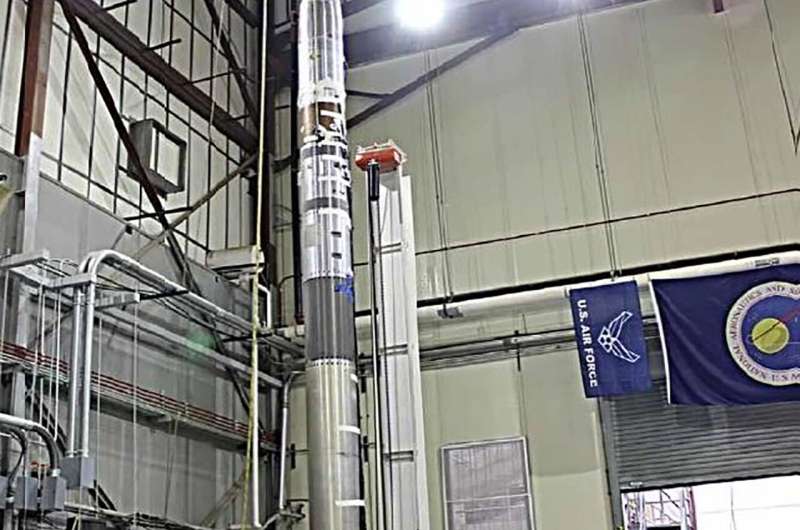
The Sun's atmosphere, or corona, is beaming with activity. Solar flares and coronal mass injections send high-energy particles out into space and the corona constantly releases particles known as the solar wind.
Just as winds on Earth vary, the solar winds departing the Sun travel at different velocities—from a mere 700,000 mph, called slow solar winds, to the fast winds travelling up to 1.7 million mph.
Solar winds interacting with the Earth's atmosphere may interfere with communications, GPS signals, and electrical energy grids.
Beginning March 7, NASA will be ready to launch an experiment called HERSCHEL, or HElium Resonance Scatter in the Corona and HELiosphere. HERSCHEL will study the origin of the slow solar wind, investigate the variation of helium abundance in the corona, and facilitate future investigation of coronal mass ejections and other solar dynamics.
Scientists think an old rocket just hit the Moon going 5,800 mph

Add one more crater to the long list of pockmarks on the lunar surface.
According to orbital calculations, a rocket hurtling through space for years crashed into the Moon on Friday, but the strike wasn't directly observed, and there might be a wait for photographic evidence.
The impact would have taken place at 7:25 am Eastern Time (1225 GMT), on the far side of the Moon, said the astronomer Bill Gray, who was the first to predict the collision.
Racing through the cosmos at around 5,800 mph (9,300 kph), the roughly four ton object should make a crater "10 or 20 meters across," Gray told AFP.
Its speed, trajectory, and time of impact were calculated using Earth-based telescope observations.
"We had lots (and lots) of tracking data for the object, and there is nothing acting on it except the forces of gravity and sunlight," he said, with the latter pushing the cylinder gently away from the Sun.
Scientists help recover gases from moon rock time capsule
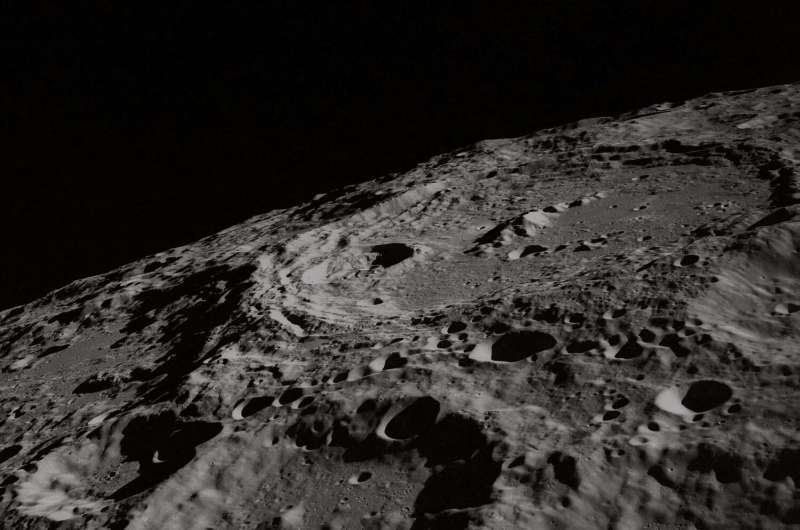
Scientists from Washington University in St. Louis are helping to recover gases from a container of lunar soil that astronauts collected and sealed under vacuum on the surface of the moon in 1972. The effort is part of NASA's Apollo Next Generation Sample Analysis (ANGSA) initiative.
Apollo 17 astronauts Harrison Schmitt and Eugene Cernan collected the sample from the site of an ancient landslide in the moon's Taurus-Littrow Valley. The astronauts used a coring device to dig out a column of lunar regolith—a rough mixture of dust, soil and broken rock from the surface of the moon—and sealed it in a container. Back on Earth, NASA carefully placed the container in the lunar vault at NASA's Johnson Space Center, where it has remained in pristine condition, virtually untouched until now.
"For the last 50 years, the lunar core was enclosed in a core sample vacuum container, which was then enclosed in an outer vacuum container," said Alex Meshik, a research professor of physics in Arts & Sciences and faculty fellow of the university's McDonnell Center for the Space Sciences. "They were nested together, almost like Russian dolls.
Image: Aerial antenna for Venus mission test
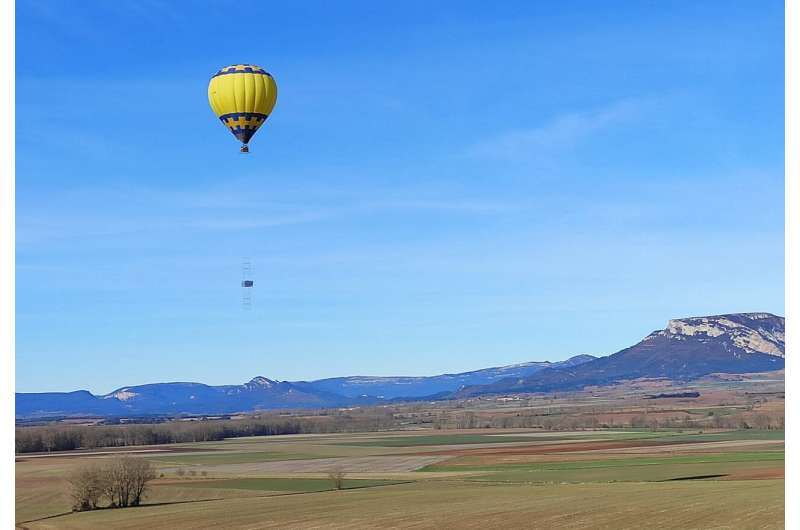
How can you accurately test a space antenna down here on Earth when it has been scaled up to penetrate the subterranean depths of another planet? This was the question faced by SENER in Spain, currently designing a candidate antenna for ESA's EnVision mission, which will explore Venus from its inner core to outermost cloud layers. To solve it they lifted their prototype skyward with a balloon.
"To develop key technologies for future missions, ESA's Directorate of Technology, Engineering and Quality often explores multiple approaches," explains ESA antenna engineer Paul Moseley.
"This includes parallel prototypes for EnVision's Subsurface Radar Sounder (SRS), which will transmit and receive radio signals to chart the Venusian subsurface. It will achieve this using very low frequencies—9 Mhz—which in turn means its antenna has to be very large, 16 m across.
"To accurately characterize the performance of SENER's current prototype it needs to be tested free of any interaction with its environment, but it is simply too big to fit dedicated test facilities such as ESA's Hertz chamber—which in any case is not equipped to work with such low frequencies.
NASA's robotic OSAM-1 mission completes critical design review
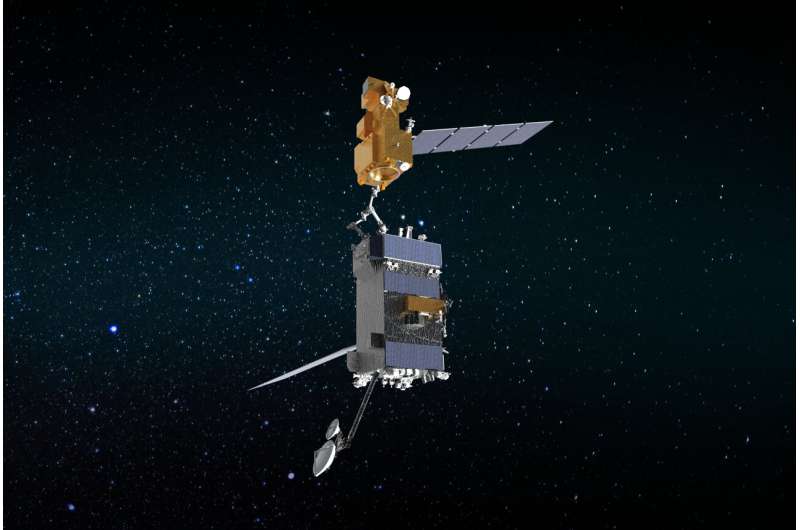
NASA's On-orbit Servicing, Assembly, and Manufacturing 1 (OSAM-1), a mission that will be the first to robotically refuel a satellite not designed to be serviced, and will also demonstrate assembly and manufacturing technologies and capabilities, has passed its mission critical design review (CDR). This is an important milestone that paves the way for the construction of the spacecraft, payloads, and ground system.
NASA and Maxar Technologies successfully completed the mission CDR in February 2022, less than a year after the same milestone was reached for the mission's spacecraft bus, which focused on the portion of the spacecraft responsible for communications, power, and maneuvering.
The mission review included all elements that will act together as an integrated system:
- Spacecraft bus
- Servicing payload with 16 subsystems including tools, visions systems, and two robotic arms
- Space Infrastructure Dexterous Robot (SPIDER) payload that will manufacture a beam and assemble a communications antenna using a third robotic arm
- Ground system
During the review, NASA engineers and leadership confirmed that the OSAM-1 design is complete and meets specified requirements.
Last-minute defense against an asteroid that could obliterate it before impact
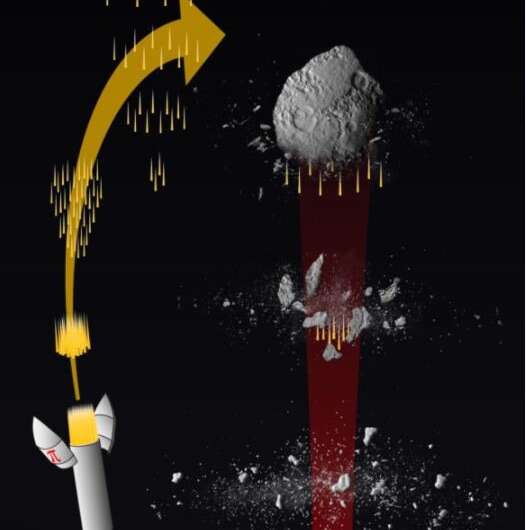
Gazing at the night sky can evoke a sense of wonder regarding humanity's place in the universe. But that's not all it can evoke. If you're knowledgeable about asteroid strikes like the one that wiped out the dinosaurs, then even a fleeting meteorite can nudge aside your enjoyable sense of wonder.
Moon and Mars superoxides for oxygen farming
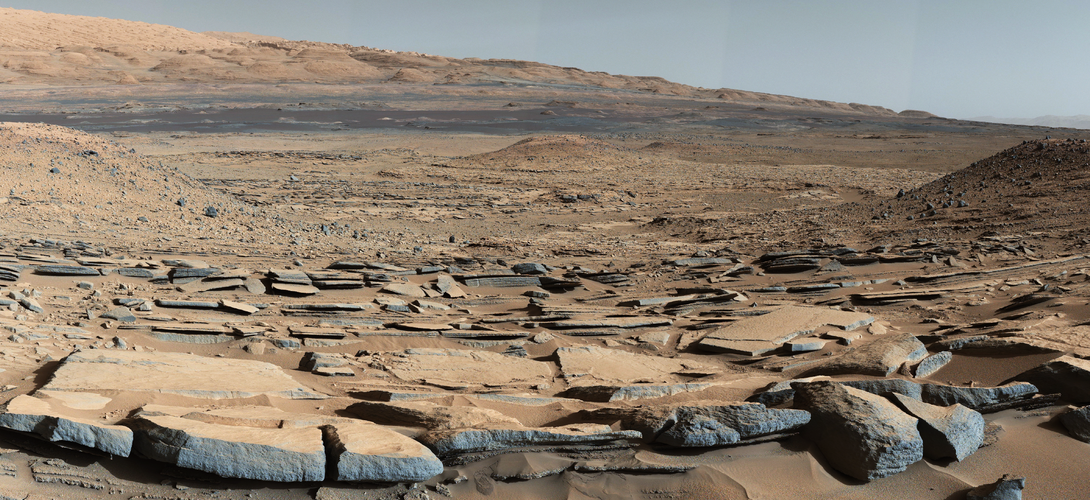
The dusty faces of the Moon and Mars conceal unseen hazards for future explorers. Areas of highly oxidising material could be sufficiently reactive that they would produce chemical burns on astronauts’ unprotected skin or lungs. Taking inspiration from a pioneering search for Martian life, a Greek team is developing a device to detect these ‘reactive oxygen species’ – as well as harvest sufficient oxygen from them to keep astronauts breathing indefinitely.
Failure to launch: War scuppers Russia-West space collaboration
 Russia's invasion of Ukraine has had repercussions not just around the world but beyond it, bringing to a grinding halt joint space projects between Moscow and the West that began in the aftermath of the Cold War.
When the head of Russian space agency Roscosmos Dmitry Rogozin announced on Thursday that Russia would stop supplying the United States with rocket engines, his message was blunt:
Russia's invasion of Ukraine has had repercussions not just around the world but beyond it, bringing to a grinding halt joint space projects between Moscow and the West that began in the aftermath of the Cold War.
When the head of Russian space agency Roscosmos Dmitry Rogozin announced on Thursday that Russia would stop supplying the United States with rocket engines, his message was blunt: 
